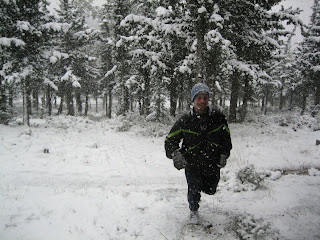Ever since my arrival in Athens, I’ve had a goal of learning to read Greek. Now, that doesn’t mean I have any illusions that I’ll actually learn to speak Greek in four months… but it means that when I see street or storefront signs spelled with Greek letters, I should be able to properly pronounce these signs. As someone who’s studied a fair amount of math and science, I assumed (before arriving): “Greek letters, no problem: there’s alpha & beta, gamma & delta… mu [myoo], nu [nyoo], pi [pie], rho [row], & sigma… phi, psi, theta, zeta… a few other obscure letters… & finally omega.”
.What I didn’t realize is that we, non-Greeks have been taught pre-modern (and in some cases: simply wrong) pronunciations for the Greek letters we use in math and science formulas (or for fraternity/sorority names). Here are a few examples of my surprises and confusions:- B/β isn’t pronounced “beta” or “baytah”; it’s “veeta”
- Г/γ isn’t “gamma”; it’s “rhahmah” (starting with a French-sounding guttural “r”); but if followed by I/ι or E/ε, it sounds like the English “y” (as in “yo, baby”); if it’s doubled (γγ) it sounds like “ng”, as in “hang loose”; if it’s paired with a kappa – γκ – then, and only then, do you pronounce it as a hard “g” (as in “gimme, gimme”)
- “Delta” (Δ/δ) is actually pronounced “thelta” (a voiced “th”, as in “these”)
- Θ/θ is theta – pronounced “thaytah” (an unvoiced “th”, as in “thanks”); this is actually the way we’re taught to pronounce this letter in school… but it’s a little confusing, because there’s such a small, subtle difference between this sound and the “th” sound made by Δ/δ.
- M/μ isn’t pronounced “moo” or “myoo” but “mee”
- N/ν, likewise, is “nee” (as in “the knights who say…”), not “noo” or “nyoo”
- T/τ doesn’t rhyme with “cow” (as in “Townsend”); it’s pronounced “tahv” or “tahf”
- If you want to make an English “b” sound in Greek, you have to use a letter combo: MΠ/μπ
- P/ρ is rho (pronounced like a Spanish “r”), not like “p”, as it looks
- If you have the equivalent of an English “s” (Σ/σ, pronounced “seegh-mah”) at the end of a word (when written in lower case), the letter takes a different form: ς.
- There are (at least) six letters and letter combinations which make the “ee” [i] sound in Greek: H, I, Y, OI, EI, YI (η, ι, υ, oι, ει, υι)
- If you see the letter Y/υ, it can be pronounced “ee”, “oo”, or “f”, depending on adjacent vowels (Y or YI = “ee”; OY = “oo”; AY = “af”; EY = “ef”)
- All Greek letters that we typically pronounce with a long "i" sound (as in "high") -- phi, pi, psi, & chi -- actually have the "ee" sound (e.g. fee, pee, psee, & khee)
In addition to confusion over letters, the Greek words for “yes” and “no” sound remarkably like their English opposites: NAI [pronounced neh] means “yes”… while OXI [pronounced approximately like okie, as in “okie-dokie”] means “no”.
But one helpful thing about Greek pronunciation: If a word (with more than one syllable) is written in lower case, an accent mark is always placed over the vowel within the stressed/accented syllable. So when you see the word for “thank you” in writing – ευχαριστώ [pronounced ehf-hah-ree-STOH] – you can tell by the accent mark that you’re supposed to emphasize the last syllable, “STOH”.
Now that you’ve had a quick lesson in reading Greek, here are a few words to let you test your Greek sign-reading skills. All of the following words are also used in English (but sometimes the Greek version has an additional flourish at the end, such as “a”, “i”, “o”, “as”, or “os”). I’ve tried to arrange them from easiest to hardest:
- καφέ
- oύζo
- Aθήνα
- ταβέρνα
- Aκρόπολις
- Kόρινθος
- μπύρα
- Mαραθώνας
- αρχαιολογία
- αμφιθέτρο
Ready for the answers? Scroll down a few lines…
.
.
.
.
- καφέ 8 café [kah-FAY]
- oύζo 8 ouzo [OO-zoh] (licorice-flavored Greek liquor)
- Aθήνα 8 Athena [ah-THEE-nah] (a.k.a. Athens; also the goddess)
- ταβέρνα 8 taverna [tah-VEHR-nah] (Greek for tavern/pub)
- Aκρόπολις 8 Acropolis [ah-CROW-poh-lease]
- Kόρινθος 8 Corinthos [COH-rin-thoce] (Greek for the city of Corinth)
- μπύρα 8 bira [BEE-rah] (Greek for beer)
- Mαραθώνας 8 Marathonas [mah-rah-THONE-ahs] (Greek for the city of Marathon)
- αρχαιολογία 8 archaeologia [ar-kheh-oh-low-HYEE-ah] (Greek for archaeology)
- αμφιθέτρο 8 amphithetro [ahm-fee-THEH-troh] (Greek for amphitheater)























